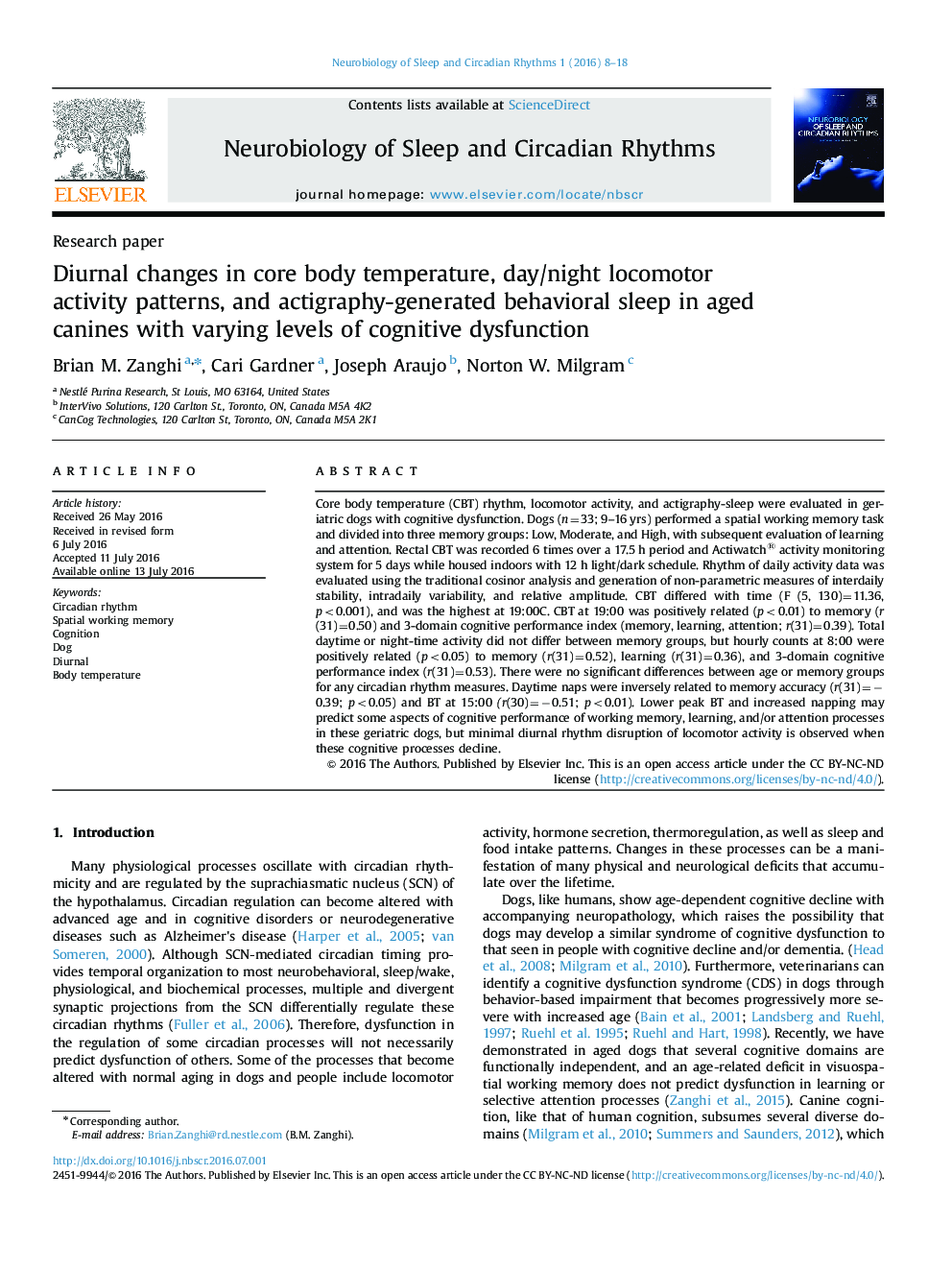| کد مقاله | کد نشریه | سال انتشار | مقاله انگلیسی | نسخه تمام متن |
|---|---|---|---|---|
| 4318504 | 1613189 | 2016 | 11 صفحه PDF | دانلود رایگان |
• Diurnal rise in core body temperature present in old dogs (9–16 years) with peak at 19:00.
• Lower peak body temperature in dogs with lowest spatial working memory ability.
• Locomotor activity rhythm unchanged in dogs with impaired spatial working memory.
• Impaired working memory related to more napping and lower afternoon body temperature.
Core body temperature (CBT) rhythm, locomotor activity, and actigraphy-sleep were evaluated in geriatric dogs with cognitive dysfunction. Dogs (n=33; 9–16 yrs) performed a spatial working memory task and divided into three memory groups: Low, Moderate, and High, with subsequent evaluation of learning and attention. Rectal CBT was recorded 6 times over a 17.5 h period and Actiwatch® activity monitoring system for 5 days while housed indoors with 12 h light/dark schedule. Rhythm of daily activity data was evaluated using the traditional cosinor analysis and generation of non-parametric measures of interdaily stability, intradaily variability, and relative amplitude. CBT differed with time (F (5, 130)=11.36, p<0.001), and was the highest at 19:00C. CBT at 19:00 was positively related (p<0.01) to memory (r(31)=0.50) and 3-domain cognitive performance index (memory, learning, attention; r(31)=0.39). Total daytime or night-time activity did not differ between memory groups, but hourly counts at 8:00 were positively related (p<0.05) to memory (r(31)=0.52), learning (r(31)=0.36), and 3-domain cognitive performance index (r(31)=0.53). There were no significant differences between age or memory groups for any circadian rhythm measures. Daytime naps were inversely related to memory accuracy (r(31)=−0.39; p<0.05) and BT at 15:00 (r(30)=−0.51; p<0.01). Lower peak BT and increased napping may predict some aspects of cognitive performance of working memory, learning, and/or attention processes in these geriatric dogs, but minimal diurnal rhythm disruption of locomotor activity is observed when these cognitive processes decline.
Journal: Neurobiology of Sleep and Circadian Rhythms - Volume 1, Issue 1, October 2016, Pages 8–18
